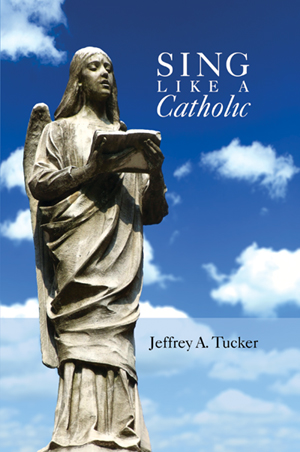The CMAA’s nineteenth annual Sacred Music Colloquium is filling up in record numbers. The registration deadline is still two months away, but rooms are going quickly. In fact, if you were planning on attending and staying in a single room, be advised that as of today there are only 25 rooms remaining at the lower price. Register today.
Still haven’t decided? One look at this year’s playlist is sure to sway you. Buchholz conducting Haydn with orchestra? Brouwers conducting a polyphonic Requiem? Turkington conducting the Byrd for Five? Countless treasures await us, including lectures by Dr. William Mahrt and Fr. Frank Phillips, an organ recital by Brother Jonathan Ryan of St. John Cantius, a new motet by Chicago’s own Kevin Allen, not to mention fellowship with old friends and new.
Don’t forget that the week before the Colloquium Scott Turkington will be teaching the second annual Summer Chant Intensive. Graduates of his week long courses are changing the shape of music in parishes all over the country. The deadline for registration is May 1st.
If there is someone you know who isn’t quite convinced he should be attending, consider giving him (or her!) Jeffrey Tucker’s book, Sing Like a Catholic. Proceeds from all sales go directly into the Colloquium scholarship fund. Purchase the book here.
 We are pleased to announce the publication of a new book, Sing Like a Catholic, by Jeffrey A. Tucker (Sacred Music), with an introduction by Scott Turkington. It is an introduction to the sacred-music perspective on Catholic music in parishes, drawing from tradition and documents as well as the author’s own experience. It is a book that provides both direction and inspiration.
We are pleased to announce the publication of a new book, Sing Like a Catholic, by Jeffrey A. Tucker (Sacred Music), with an introduction by Scott Turkington. It is an introduction to the sacred-music perspective on Catholic music in parishes, drawing from tradition and documents as well as the author’s own experience. It is a book that provides both direction and inspiration.